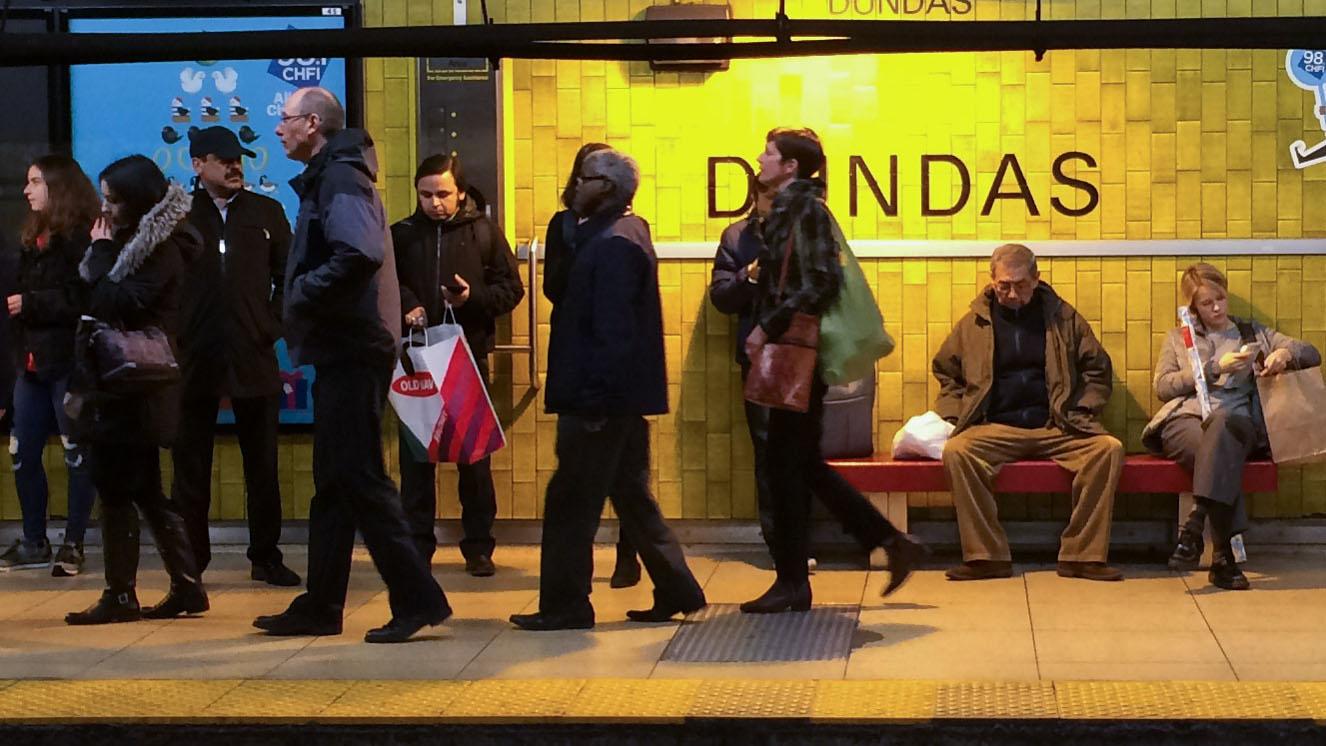By Vanessa Balintec
With Toronto having the longest commuting times in Canada, student-focused commuting could lessen the impact of traveling on students.
The average travel time for commuters in Toronto is 32 minutes, according to the 2016 census by Statistics Canada.
With only under three per cent of Ryerson students living on residence, Raktim Mitra, a Ryerson urban and regional planning associate professor, said being engaged in the city planning process could help the university provide infrastructure to improve student commuting.
Mitra is a researcher and expert in transportation and healthy community planning. He contributed to the 2015 StudentMoveTO study, one of the only studies conducted about Toronto’s students travelling habits, and what factors influence their work, studies, and daily activities.
“We also saw that students who live farther from their campuses have a lower rate in participation in extracurricular activities,” he said. “We do know that all these indicators relate to a student’s social health, their social well-being, their ability to make friends, and [it is] most likely associated with their mental health as well.”
Mitra said while planning and details are still in the works, representatives from universities are trying to collaborate with transportation professionals and policy makers. He said there is interest from post-secondary institutions in creating a formal partnership to have an “impactful influence” on decisions about student commuting.
Petrina Mo, a first-year RTA student, used to commute from York Mills but now lives in the International Living/Learning Centre on campus.
“It’s easy to make friends, and definitely more convenient too,” said Mo. “I commuted for one week before living here, and I literally didn’t know anyone. I didn’t know how to make friends.”
Mo said, “I don’t think I would’ve known anyone … from any other courses if I wasn’t living on res.”
Selma Lachemi, a first-year social work student, said her commute from Mississauga sometimes discourages her from going to class.
“If it’s just a one hour class, I feel like there’s no point. Especially if it takes longer to get there than the actual class, I don’t want to go,” said Lachemi. “To get to class, it takes over 20 dollars sometimes a day. It’s totally not worth it, but I’m still pretty good about going.”
When students live far away, “their frequency of coming to campus goes down,” said Mitra.
“They’re not commuting to class every day,” he said, “they’re choosing their course work based on these two to three days they’re able to come to class.”
Julia Stefanska, a fourth-year sociology student, also takes the bus and subway to campus. She said because of her travel time, she often works from online instead of coming to class.
“I don’t even bother coming to certain classes, I’ll just come to hand in assignments or do exams,” she said. “It sucks.”
“It’s never the same amount of time [commuting] because there’s always factors that come in, like delays on the subway, or an accident,” said Stefanska.
The TTC recently reminded its customers that it offers late note courtesies for commuters delayed by their subways, buses, and trains. According to TTC spokesperson, Stuart Green, commuters can call the TTC’s customer service hotline from 7 a.m. to 10 p.m. any day of the week to request a note, but the wait to get the note may not be so speedy.
Major delays and disruptions that are made public can warrant a fast delivery of a note, but smaller delays that are harder to verify may take up to two business days or longer until a late note is given. Green said official logs about TTC delays are usually accessed the day after the service disruption.
While courtesy notes may be one general method of addressing a common commuter concern, Mitra points to upcoming initiatives like the Yonge Street Revitalization project to improve students’ travelling experience.
The Yonge Street Revitalization project is the city’s plan to reconstruct Yonge Street in upcoming years to make it more pedestrian friendly. Mitra said Ryerson’s campus design and reconstruction unit is working with the city to inform developments which could benefit students.
“For example, a bike lane on Yonge street would very much benefit our students,” said Mitra. “Similarly, if Yonge street had a much improved sidewalk and pedestrian rail, that would help most of our students who take the TTC and get off at the Dundas station then come to campus.”
He said Ryerson has been involved with potentially getting more TTC subway entrances near campus.
Ryerson is looking to the future to incorporate city infrastructure that benefits students, said Mitra. “As a university, our role should be [to figure out] how to make their experiences more pleasant, more comfortable, or convenient.”













Leave a Reply